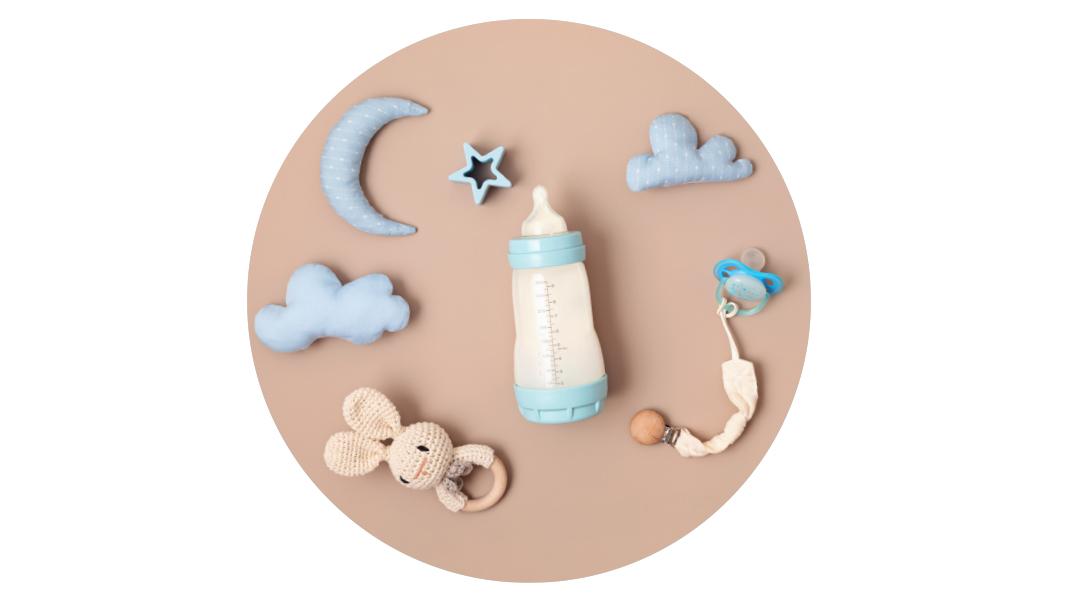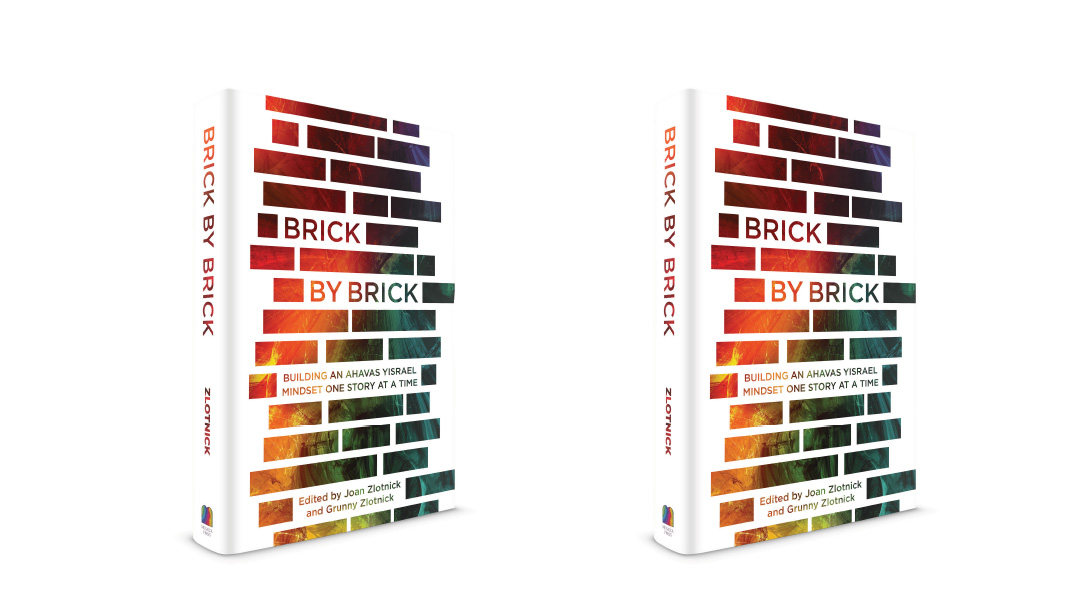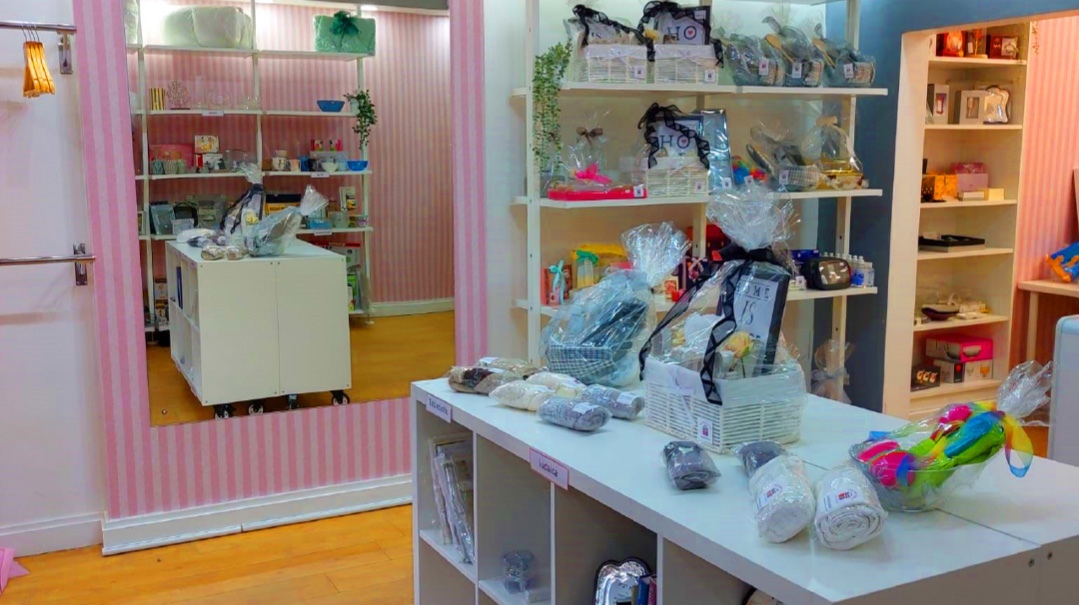Meet… Chana Falk
| January 23, 2024Chana Falk founded and runs Keren Ohr, an oasis for couples suffering from infertility

From Normal to a Parallel Universe
I grew up in Manchester, England, where everything about my life was pretty regular — until, when I was seven years old, my father suffered a stroke that the doctors said he wouldn’t survive. Baruch Hashem, today my father is a walking, talking miracle. (He even relearned safrus and wrote sifrei Torah again, but this time with his left hand.) I also saw my mother run the Manchester doula service, which she started after losing a child a few days after birth. Subconsciously, I learned that challenges can also be the catalyst for incredible growth and giving to others.
When we moved to Romema as a young kollel couple, I fit right in. I worked in the mornings; during afternoon seder I’d meet up with friends, where we’d figure out supper menus for two. One by one we started swapping out our wardrobes for looser tops and dresses — or rather, I noticed my friends doing this. When I visited them in the hospital and organized meal trains, I was still fitting into my sheva brachos clothing, and enjoying a nausea-free shanah rishonah. I was confident that it would happen for us in its own time.
Except that it didn’t. Somehow, without noticing, I had moved into a parallel universe where I was the only one interested in topics other than pregnancy, strollers, and sleep training. It was a universe where people started giving pointed looks when I was out on the street, and it was very uncomfortable. After two years of this, we felt like Romema wasn’t the place to be, and we moved to Ramat Beit Shemesh.
My husband was firm about the attitude we’d take going forward. We’d heard couples say, “If only we’d known when it would happen, we’d have spent those years differently.” He was adamant that that wouldn’t be us. We’d do our hishtadlus and daven our hearts out and never stop trying, but at the same time we’d focus on how we could grow from this stage, however hard it would be. There were times when this felt impossible, but we stuck with it and are grateful to look back with no regrets.
Like Being Thrown off a Building
People think they know how hard infertility is, but it’s difficult to understand on a theoretical level. Each round of treatment takes so much practical hishtadlus that it takes over your life. And that’s not counting the emotional investment — the hope, the vulnerability, the fear that it’ll fail, and then how will you go through it all over again? And when does it end? And maybe the cruelest part is how the side effects feel just like how your friends describe their pregnancies. You actually feel like you’re expecting — you’re bloated, nauseous, exhausted, and desperate for validation and support, but it’s so private that no one else knows what you’re experiencing. And then after two weeks of the “maybe-this-time-around-it’ll-be-for-real” thoughts that got you through the discomfort, you are told that no, you have to go through it all over again. And again, and maybe again after that because no one can tell you when (if?) it’ll happen.
And it’s so hard, because you have no idea how many times you’ll have to do this. But each time it happens, it’s like being thrown off the top of a hundred-story building that you used your last bit of energy to climb. How do you just stand up and start again? Where do you find the strength for it?
I knew that I needed a break to recover before I could start again. Not to relax, but to have a safe space to process the difficult experiences and find closure, before jumping back into the whirlpool. But infertility is expensive, and the incredible organizations that had helped us until now didn’t cater for this.
A Complete Reset
It felt like a miracle when, a few days later, a friend randomly gave me an envelope and told me to use the money inside for something nice. So we booked a little tzimmer up north and went away for two days.
It’s hard to describe it, but it was essentially a complete reset. As a couple, we cried together for our pain. But we also let go, and made peace with the past. And when we left, we were ready to try again.
Without that emotional burnout, the physical demands of the next treatment cycle were much easier to cope with. It felt like a different experience.
And that month, the results came back positive. We were having a baby.
But even though we finally had our yeshuah, I couldn’t stop thinking about how I’d struggled through the treatments before the break and how much easier it had been afterward. I wanted to share that with other women, and that’s when Keren Ohr was born. The journey of infertility can be so dark, but we would be there to shine a light along the way.
Finding Keren Ohr’s Home
We wanted to create an organization that would sponsor mini-getaways for couples suffering infertility. When we called potential donors, they advised us to find a piece of land to build our own apartment, as that would be more cost-effective. But the agents we spoke to told us that moshavim wouldn’t allow us to buy land for a vacation rental. While we were looking into other options, our miracle was born. We put it on hold for the time being as we figured out the joys and challenges of parenthood.
But while we were getting used to our new routine, Hashem was working behind the scenes. Our friends Reena and Yoni Palmer had built a home on a nearby moshav. They invited us for a visit, and it was stunning. Exactly what we’d been looking for. And then, they broke the news: They loved our vision, and wanted to be a part of it. They would donate part of the land to Keren Ohr.
With their generosity, our dream came back to life. It was a clear sign that Hashem wanted this to happen, so how could we turn Him down? I went into literal design heaven. I spent hours planning every single detail, to make sure it would be as far from a medical setting as possible — there is not a single white wall in the apartment. Everything is of the highest quality. The surrounding garden feels like it was brought over from the English countryside. And we put in every extra we could think of — fresh slippers and bathrobes, chocolate on the pillows, a coffee machine — like a luxury hotel, but completely private. We’re still constantly updating it to keep it feeling fresh and new for each couple, to the extent that I gave up my job to be available for this full-time.
Our Impact
We were nearly ready to open when a couple got in touch. They’d been married for over five years and had just suffered a miscarriage halfway through their first pregnancy. They were absolutely devastated and couldn’t face going home after leaving the hospital. We opened up early for them, and while we felt bad that it wasn’t fully ready, they were absolutely blown away. I keep the letter that she wrote afterward here in a file, in which she details every single thing that she appreciated while staying here and how it comforted them in the face of that loss.
But the climax of the story is that she asked to come again when they came up to their sixth anniversary and were still in the never-ending cycle of treatments. Afterward, she told me that she couldn’t imagine being anywhere else for that bittersweet milestone. And while she’d had concerns that it would bring back the memories of the miscarriage, she only felt happy and relaxed throughout the break.
And also — because how can I choose just one? — the email we got from another couple who came to us shortly after suffering a miscarriage. She wrote it on what would have been her baby’s due date, to show her appreciation for Keren Ohr giving her some positive memories from that painful period.
Best Feedback We Ever Got
It’s hard to answer that, especially as a lot of the feedback we get is too personal to share. But every letter we get is special, especially as we went into it with zero expectations. My father-in-law, Rav Falk ztz”l, warned us at the start that we might receive complaints, as people can find it hard to show hakaras hatov. So with that in mind, the sheer level of appreciation we have received since opening has been mind-blowing. It’s like there’s a draft copy that’s handed out, as the letters are all so similar and all comment on the same details. I have a big file with every letter saved; it’s what keeps us going.
Not a Vacation
People think that couples without children have no responsibilities; they have this idea that it’s like an extended shanah rishonah, with waffles for breakfast every morning. But it’s so far from the truth. Infertility is exhausting. Keren Ohr isn’t offering vacations — we provide a safe place for couples to strengthen their marriage by working through the pain as a team, so they can find the strength to carry on. We are not about the bottom-line outcome — only Hashem can create life. But we want to make the process as easy as possible.
Our Dream
Our biggest challenge is trying to accommodate everyone who calls Keren Ohr. We have our permanent location, but that’s booked back-to-back. Two generous families have agreed to let Keren Ohr couples use their vacations homes when they’re out the country, but even with this, we can only say yes to about 20 percent of the 80-90 calls we get a month. Having to say no to so many couples who really need it is so hard for us.
We’re constantly working on finding new locations, either permanent or part-time. But in the meantime, we’re also finding ways to support people from a distance. We’ve started offering care packages, Shabbos in a Box deliveries, and anniversary gifts. We also offer meals if a couple needs a pick-me-up, or if they’re in the hospital until late. And we are working on setting up a program in which each of the couples on our list receives a gift every Yom Tov, as that’s an especially difficult time. We just want to be there for our couples in every way we possibly can.
My favorite midnight snack: Wissotzky Salted Caramel Chai Latte! Just hot milk and a tea bag, with some silan or maple syrup
Favorite song: Benny Friedman’s “A Yid”
Recent fave read: I’m actually a qualified librarian, so that’s tough! But I recently read Regards from Our Upstairs Neighbors, and I was surprised at how much I enjoyed it
I’d do anything to avoid: Fundraising! That’s the honest truth. But the only thing I hate more than fundraising is saying no to a couple who needs us, so that’s what keeps us making those calls
(Originally featured in Family First, Issue 878)
Oops! We could not locate your form.







